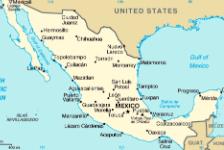Mexico's drug violence reached a peak on Sept. 15, the eve of Independence Day, when a grenade attack on civilians bloodied a historic plaza in Morelia, capital of Michoacan state. But the very ferocity of the attack has managed to unite Mexican society against organized crime to an unprecedented degree. Coming on top of the roughly 3,800 murders attributed to drug violence just this year, the attack, which killed eight people and injured over 100, triggered a public outcry and a rare moment of national consensus. In its aftermath, even left-leaning opposition leader Andrés Manuel López Obrador, President Felipe Calderón's most virulent critic, has softened his combative posture. For the first time in recent memory, López Obrador made a speech on Sept. 28 in which he didn't refer to Calderón as an "espurio" (a derogatory term roughly meaning "illegitimate"), according to Mexico City daily El Universal. The insult refers to to the bitterly contested 2006 presidential elections, which Calderón narrowly won, but which López Obrador insists were fraudulent. Toning down his populism, López Obrador was also careful to distinguish between Mexico's entrepreneurial class (Calderón's base) and the rampant corruption that fuels drug violence. "We are not against those who with law-abiding effort and work generate riches and jobs," he declared, "but [rather] those who amass great illegal fortunes overnight."
Latest Attack Unifies Mexico Against Drug Violence

